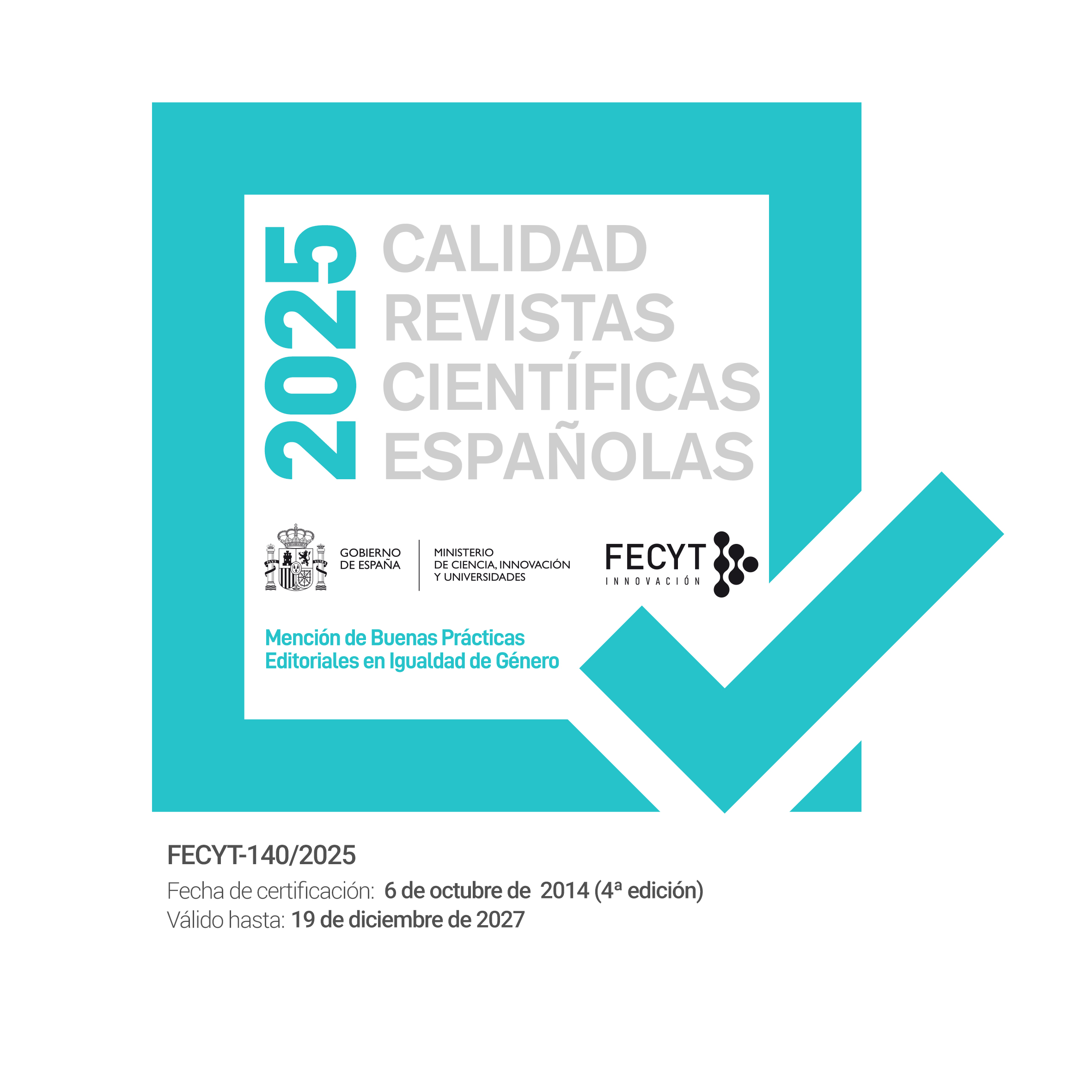Procesos de Aprendizaje en Aprendizaje-Servicio Universitario: Una Revisión Teórica
DOI:
https://doi.org/10.5944/educxx1.22716Palabras clave:
Aprendizaje Servicio, Educación Superior, Psicología de la Educación, Procesos de Aprendizaje, Revisión de la LiteraturaResumen
El Aprendizaje-Servicio (ApS) ha extendido su alcance en la educación superior en las últimas décadas, incrementando el número de programas implementados y de centros que los sustentan. Este proceso ha sido acompañado por un despegue de la investigación, con la aparición de sociedades académicas y revistas dedicadas al ámbito. Pero estos encuentros científicos han evidenciados divergencias en la forma de entender el ApS en cuestiones fundamentales. En este trabajo analizamos una de esas divergencias: la diversidad de modelos conceptuales acerca de los procesos de aprendizaje propios del ApS y sus correspondientes líneas de investigación. Proponemos una discusión crítica sobre este tema que ayude a fundamentar un marco teórico sólido para el ApS.
Para ello realizamos una búsqueda bibliográfica en torno a los temas “procesos de aprendizaje” e “identidad” en Aprendizaje-Servicio, utilizando la base de datos ERIC. De los artículos encontrados, procedimos a una selección para su lectura en profundidad, en aras de encontrar las principales líneas de investigación en ApS y construir una discusión alrededor de los procesos de aprendizaje e identidad en los que se fundamenta la investigación actual.
Examinamos las similitudes y diferencias de tres perspectivas teóricas que identificamos como centrales en la investigación, el aprendizaje experiencial, el aprendizaje transformativo y las teorías críticas, y una cuarta emergente, el enfoque histórico-cultural, elaborando nuestra discusión en dos bloques: procesos de aprendizaje y procesos de identidad.
Nuestro análisis permite identificar diferentes procesos de aprendizaje e identidad presentes en los modelos teóricos analizados, que a nuestro juicio permiten definir los modelos de aprendizaje propios del ApS: reflexión a partir de la experiencia, transformación de la identidad a través de la alteridad, asunción de la agencia a través de la toma de conciencia social e implicación en una comunidad de prácticas a través de la construcción de significados y metas compartidos.
Descargas
Citas
Averett, P.E., & Arnd-Caddigan, M. (2014). Preparing BSW Students for Service-Learning: Enhancing Epistemological Reflection. Journal of Teaching in Social Work, 34(3), 316-331.
Bowdon, M., Pigg, S., & Mansfield, L.P. (2014). Feminine and Feminist Ethics and Service-Learning Site Selection: The Role of Empathy. Feminist Teacher, 24(1), 57-82.
Bennett, D., Power, A., Thomson, C., Mason, B., & Bartleet, B.L. (2016). Reflection for learning, learning for reflection: Developing Indigenous competencies in higher education. Journal of University Teaching & Learning Practice, 13(2), Retrieved from: https://bit.ly/2SgNUqf
Bringle, R.G., Hatcher, J.A., & Jones, S.G. (Eds.). (2011). International service learning: Conceptual frameworks and research. Sterling, VA, USA: Stylus.
Carracelas-Juncal, C. (2013). When Service-Learning Is Not a≫ Bordercrossing ≫ Experience: Outcomes of a Graduate Spanish Online Course. Hispania, 96(2), 295-309.
Carson, R.L., & Domangue, E.A. (2013). The emotional component of servicelearning. Journal of Experiential Education, 36(2), 139-154.
Chan, K., Ng, E., & Chan, C.C. (2016). Empowering Students Through Service-Learning of Community Psychology: A Case in Hong Kong. Journal of Higher Education Outreach and Engagement, 20(4), 25-36.
Colby, A. (2008). The place of political learning in college. Peer Review, 10(2/3). Retrieved from https://bit.ly/2DiMx01
Deeley, S.J. (2016). El Aprendizaje-Servicio en educación superior: Teoría, práctica y perspectiva crítica. Madrid: Narcea.
Dewey, J. (1916). Democracy and education: An introduction to the philosophy of education. New York, NY, USA: Macmillan.
Dewey J (1938) Experience and Education. New York, USA: MacMillan Publishing Company.
Dvir, N., & Avissar, I. (2014). Constructing a critical professional identity among teacher candidates during service-learning. Professional development in education, 40(3), 398-415.
Engberg, M.E. (2013). The influence of study away experiences on global perspective-taking. Journal of College Student Development, 54(5), 466-480.
Engestrom, Y. (1999). Activity theory and individual and social transformation. In Y. Engestrom, R. Miettinen, & R. Punamaki. (Eds.). Perspectives on activity theory (pp. 19-38). Cambridge, UK: Cambridge University Press.
Fenton, L., & Gallant, K. (2016). Integrated Experiential Education: Definitions and a Conceptual Model. The Canadian Journal for the Scholarship of Teaching and Learning, 7(2), 7.
Freire, P. (1987). Letter to the North American teacher. In I. Shor (Ed.), Freire for the classroom, a sourcebook for liberatory teaching (pp. 211-214). Portsmouth, NH, USA: Boynton Cook Publishers.
Freire, P. (2000). Pedagogy of the Oppressed, 30th Anniversary Edition. New York, USA: Bloomsbury Academic.
Frost, G., & Connolly, M. (2015). The road less travelled? Pathways from passivity to agency in student learning. Collected Essays on Learning and Teaching, 8, 47-54.
Geijsel, F., & Meijers, F. (2005). Identity learning: The core process of educational change. Educational studies, 31(4), 419-430.
Gerstenblatt, P. (2014). Blogs as a Representation of Student Experiences in a Service Learning Course. Metropolitan Universities, 25(3), 111-129.
Gil-Gomez, J., Chiva-Bartoll, O., & Marti-Puig, M. (2015). The impact of service learning on the training of pre-service teachers: Analysis from a physical education subject. European Physical Education Review, 21(4), 467-484.
Giles, H.C. (2014). Risky Epistemology: Connecting with Others and Dissonance in Community-Based Research. Michigan Journal of Community Service Learning, 20(2), 65-78.
Gold, S. (2010). The implications of Rorty’s post-foundational ‘moral imagination’ for teaching business ethics, Journal of Business Ethics, 94(2), 299-310.
Haddix, M. (2015). Preparing community-engaged teachers. Theory Into Practice, 54(1), 63-70.
Harrison, B., Clayton, P.H., & Tilley-Lubbs, G.A. (2014). Troublesome Knowledge, Troubling Experience: An Inquiry into Faculty Learning in Service-Learning. Michigan Journal of Community Service Learning, 20(2), 5-18.
Hunt, K.P., & Krakow, M.M. (2015). The best of both worlds: exploring crosscollaborative community engagement. The Journal of Effective Teaching, 15(2), 87-98.
Iverson, S.V., & James, J.H. (2013). Selfauthoring a civic identity: A qualitative analysis of change-oriented service learning. Journal of Student Affairs Research and Practice, 50(1), 88-105.
Jacoby, B. (2003). Fundamentals of service-learning partnerships. In B. Jacoby & Associates, Building partnerships for service-learning (pp. 1-19.) San Francisco, CA, USA: Jossey-Bass.
Kiely, R. (2005). A transformative learning model for service-learning: A longitudinal case study. Michigan journal of community service learning, 12(1), 5-22.
Leek, D.R. (2016). Policy debate pedagogy: a complementary strategy for civic and political engagement through service-learning. Communication Education, 65(4), 397-408.
Levkoe, C.Z., Brail, S., & Daniere, A. (2014). Engaged pedagogy and transformative learning in graduate education: A service-learning case study. The Canadian Journal of Higher Education, 44(3), 68-85.
Mezirow, J. (1997). Transformative learning: Theory to practice. In P. Cranton (Ed.), Transformative learning in action: Insights from practice. New directions for adult and continuing education (pp. 5-12). San Francisco, CA, USA: Jossey-Bass.
McDowell Marinchak, C.L. (2014). Students Connecting with the University Community: The Learning Community as Bridge. Learning Communities Research and Practice, 2(2), Article 8. Retrieved from:
McLaren, P. (1989). Life in schools: An introduction to critical pedagogy in the foundations of education. New York, NY, USA: Longman.
McMillan, J., Goodman, S., & Schmid, B. (2016). Illuminating ≪Transaction Spaces≫ in Higher Education: University–Community Partnerships and Brokering as ≪Boundary Work≫. Journal of Higher Education Outreach and Engagement, 20(3), 8-31.
Mitchell, T.D., Richard, F.D., Battistoni, R.M., Rost-Banik, C., Netz, R., & Zakoske, C. (2015). Reflective Practice That Persists: Connections between Reflection in Service-Learning Programs and in Current Life. Michigan Journal of Community Service Learning, 21(2), 49-63.
Naude, L. (2015). On (un) common ground: Transforming from dissonance to commitment in a service learning class. Journal of College Student Development, 56(1), 84-102.
Nickols, S.Y., Rothenberg, N.J., Moshi, L., & Tetloff, M. (2013). International service-learning: Students’ personal challenges and intercultural competence. Journal of Higher Education Outreach and Engagement, 17(4), 97-124.
Perren, J., Grove, N., & Thornton, J. (2013). Three Empowering Curricular Innovations for Service-Learning in ESL Programs. TESOL Journal, 4(3), 463-486.
Petrov, L.A. (2013). A pilot study of service-learning in a Spanish heritage speaker course: Community engagement, identity, and language in the Chicago area. Hispania, 96(2), 310-327.
Piaget, J. (1976). Piaget’s theory. In B. Inhelder & H.H. Chipman (Eds.), C. Zwingmann (Coordinating Ed.), Piaget and his school: A reader in developmental psychology (p. 11). New York, NY, USA: Springer.
Power, A., & Bennett, D. (2015). Moments of becoming: experiences of embodied connection to place in artsbased service learning in Australia. Asia-Pacific Journal of Teacher Education, 43(2), 156-168.
Taylor, A. (2017). Service-Learning Programs and the Knowledge Economy: Exploring the Tensions. Vocations and Learning, 10(3), 253-273.
Taylor, E. (2009). Transformative learning, In J. Mezirow, E. Taylor, & Associates (Eds.), Transformative learning in practice. San Francisco, USA: John Wiley & Sons.
University of Northern Colorado. Community and Civic Engagement Committee. (2017). Sustaining and Advancing Engagement Plan 2017-2020.
Vygotsky, L.S. (1978). Mind and society: The development of higher psychological processes. Cambridge, MA, USA: Harvard University Press.
Wenger, E. (2010). Communities of practice and social learning systems: the career of a concept. Social learning systems and communities of practice, 3, 179-198.
Whitley, M.A. (2014). A Draft Conceptual Framework of Relevant Theories to Inform Future Rigorous Research on Student Service-Learning Outcomes. Michigan Journal of Community Service Learning, 20(2), 19-40.
Wilson, R.E., Bradbury, L.U., & McGlasson, M.A. (2015). Integrating service-learning pedagogy for preservice elementary teachers’ science identity development. Journal of Science Teacher Education, 26(3), 319-340.
Winans-Solis, J. (2014). Reclaiming power and identity: Marginalized students’ experiences of servicelearning. Equity & Excellence in Education, 47(4), 604-621.
Woodruff, E.A., & Sinelnikov, O. A. (2015). Teaching young adults with disabilities through service learning. European Physical Education Review, 21(3), 292-308.
Yep, K.S. (2014). Reimagining Diversity Work: Multigenerational Learning, Adult Immigrants, and Dialogical Community-Based Learning. Metropolitan Universities, 25(3), 47-66.
Young, S., & Karme, T. (2015). Service learning in an Indigenous not-forprofit organization. Education+Training, 57(7), 774-790.
Publicado
Cómo citar
Número
Sección
Licencia
Derechos de autor 2019 Educación XX1

Esta obra está bajo una licencia internacional Creative Commons Atribución-NoComercial 4.0.
La revista Educación XX1 se publica bajo licencia Creative Commons Reconocimiento-NoComerciaL 4.0 (CC BY-NC 4.0). Se permite la generación de obras derivadas siempre que no se haga un uso comercial. Tampoco se puede utilizar la obra original con finalidades comerciales.










